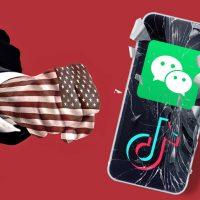TikTok was granted a last-minute reprieve Sunday as a federal judge issued a preliminary injunction against the Trump administration’s order to ban the popular social media app.
The injunction, however, does not cover a broader restriction set to take effect in November, the New York Times reported.
The injunction does not apply to WeChat, which is owned by the Chinese company Tencent Holdings. WeChat has emerged as the preferred mode of communication for property owners and developers, who have been bracing for the order’s potential negative impact on their business dealings with Chinese companies.
Read more

In May, TikTok’s parent company, ByteDance, signed a lease with the Durst Organization to take over 232,000 square feet at One Five One. The deal was seen as a big win in the pandemic-stricken office market, but it’s unclear what would happen to that office space if the app is banned from the United States.
The Trump administration initially issued an executive order in August to ban TikTok and WeChat from operating in the United States, citing security concerns.
Earlier this month, the app’s parent company reportedly reached a preliminary agreement with Oracle and Walmart to create a new entity, TikTok Global, in which the American companies would jointly own a 20 percent stake, and ByteDance would initially own the other 80 percent.
The fate of that TikTok deal remains uncertain as President Trump said in an interview on “Fox & Friends” on Monday that he wanted the U.S. companies to have “total control” of the app. The deal also requires approval from Beijing. [NYT] — Akiko Matsuda
